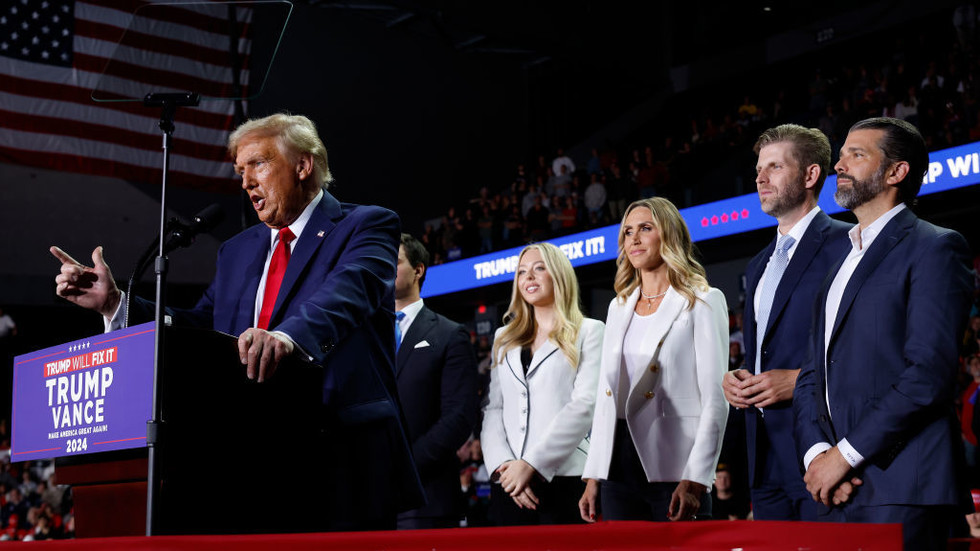In a recent interview with Fox News, US President-elect Donald Trump expressed his desire to keep his children out of his upcoming administration, marking a noteworthy shift from his previous presidency from 2017 to 2021. Citing the toll that political life has taken on his family, Trump stated, “That’s enough for the family!” reflecting on the struggles and scrutiny his family has faced throughout his political career. This decision comes in light of the recent pressures, legal challenges, and public criticism that his children, particularly Ivanka Trump and Jared Kushner, experienced during Trump’s first term, demonstrating a protective instinct from a father who wants to shield his family from continued pain.
During his first presidency, Trump’s eldest daughter and son-in-law served as key advisers, a role that drew significant controversy and criticism. Ivanka’s recent announcement to step back from politics coincided with Trump’s renewed pursuit of the presidency in 2024, stating her intention to focus on her family rather than political life. This decision was likely influenced by the legal challenges the Trump family faces, including his ongoing criminal cases and civil suits, which have cast a long shadow over their public lives. At the same time, Ivanka’s coping strategy highlights the balancing act many political families face between their public duties and personal priorities.
Interestingly, while Trump indicated he doesn’t want his children involved, he also mentioned his 18-year-old son, Barron Trump, asserting that Barron played a pivotal role in his campaign strategies. The contrasting views of wanting to shield his family while still highlighting Barron’s contributions reflect an intricate dynamic that often exists within politically active families. This duality captures the essence of modern political campaigns, where family involvement can be both a source of strength and vulnerability, further complicated by the legal and ethical landscapes they navigate.
Amidst these familial considerations, there are other noteworthy figures Trump alluded to possibly holding influential positions in his government if he wins the election. He cited Tesla and SpaceX CEO Elon Musk and political figure Robert F. Kennedy Jr. as potential allies, suggesting a broader vision for his administration that deviates from traditional party lines and seeks to incorporate voices from outside the typical political sphere. This inclusion may signify Trump’s ongoing effort to reshape his administration around pragmatism and innovation, despite the potential familial tensions his administration’s unfolding narrative could evoke.
Trump’s decision to distance his children from a forthcoming administration also roots itself in the reality of public opinion and the scrutiny his family has endured. By acknowledging the painful experiences his family has gone through, he creates space for a more compassionate understanding of the challenges faced not just by political figures, but also by their families who often bear the brunt of public expectations and media narratives. Ultimately, this announcement could pave the way for a less familial atmosphere in his administration, perhaps ushering in collaborations based on merit and expertise rather than family ties.
As Trump prepares to navigate his comeback strategy for the presidency and the broader implications of his past decisions, the determination to protect his family may resonate with many American families who grapple with the intense pressures of public life. His choice could set a new precedent for how political figures manage their personal and familial interests in public governance, ultimately suggesting a potential for political spaces that are more insulated from the personal costs of public service. Whether or not this will result in a more effective administration remains to be seen, but it certainly indicates a reflection on the human elements intertwined with politics.

